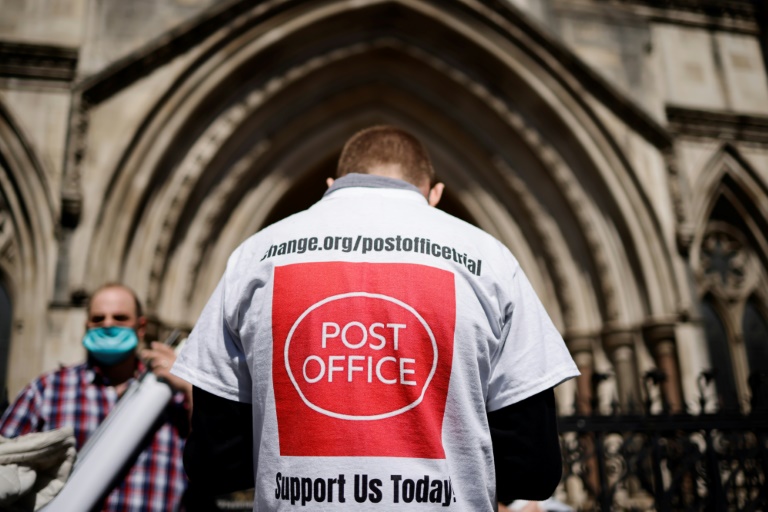Public anger is mounting over what has been described as Britain’s biggest ever miscarriage of justice that saw hundreds of subpostmasters wrongly convicted of theft because of a computer software glitch.
Lives were ruined by the false accusations that led to some Post Office branch managers being jailed, going bankrupt, losing their homes and their health.
Four people took their own lives and dozens of those since exonerated died without seeing their names cleared.
Now, a TV drama telling the story of the subpostmasters’ ordeal at the hands of their own employer has generated a wave of sympathy for the victims.
Critics hailed the four-part “Mr Bates vs The Post Office”, broadcast last week, for humanising the ordeal of hundreds of people prosecuted for false accounting and theft between 1999 and 2015.
Far from being criminals, the subpostmasters — pillars of their local communities — had not stolen a penny.
In fact they were the victims of flawed accounting software and the state-owned Post Office’s determination to defend it.
Following the broadcast, a petition calling for former Post Office boss Paula Vennells to be stripped of an honour she received from Queen Elizabeth II has garnered more than a million signatures.
Prime Minister Rishi Sunak described the scandal as an “appalling miscarriage of justice” that should “never have happened”.
– ‘Lies and deceit’ –
The drama stars award-winning actor Toby Jones as Alan Bates, who leads a long David and Goliath battle to prove the postmasters’ innocence.
It documents the fear and desperation of the branch managers as they struggled with the new “Horizon” software supplied by Japanese tech giant Fujitsu.
In one scene, subpostmaster Jo Hamilton is depicted calling a helpline only to see the supposed shortfall in her accounts double on the screen as she speaks.
Hamilton was accused of stealing £36,000 ($45,000) but pleaded guilty to false accounting for fear of being sent to jail.
More than 700 subpostmasters ended up with criminal convictions as a result of the scandal, with 236 serving jail time.
Jess Kaur, whose story was featured in the TV programme, broke down as she recounted the shame of being dragged before a judge for a crime she had not committed.
“It drove me so mad that I tried to commit suicide,” she told Good Morning Britain, adding that after she was accused customers would spit on the floor of her shop in disgust.
Kevan Jones, an MP who sits on a board set up to award compensation to victims, said the programme had successfully communicated the depths of the subpostmasters’ suffering.
“The drama was very good not only at exposing the lies and deceit that took place, it showed the complete heartache and broken lives,” he said.
He warned, however, that it would be difficult to get more convictions overturned because “most of these people will not come forward… They will not go anywhere near a court of law because of the trauma”.
To date only 93 convictions have been formally overturned.
In 2017, Bates and five others took the Post Office to court on behalf of 555 subpostmasters.
Two years later the High Court ruled that it had been computer errors, not criminality, that had been behind the missing money.
Judge Peter Fraser condemned the Post Office for “institutional obstinacy” over its refusal to properly investigate the real source of the problem.
– ‘Cover up’ –
A public inquiry into the scandal opened in February 2022 but has yet to examine who at the top of the Post Office knew what and when.
Victims hope it will establish who was responsible for Post Office lawyers hounding innocent people through the courts even after credible doubts had been raised about Horizon.
Nick Wallis, a journalist and author of “The Great Post Office Scandal”, said the way Post Office investigators had gone about prosecuting people had been an “absolute racket” and its board had gone “out of its way to cover it up”.
“We are seeing the people who are still able to function and still able to tell their stories,” he told AFP.
Many others, he said, had been so traumatised by the “hell they went through” they had completely withdrawn from their communities.
James Arbuthnot, an MP at the time of the scandal who campaigned on behalf of victims, said the number of people formally cleared was “pathetically small” and called for parliament to step in.
“We’ve seen the way that investigators behaved… contrary to the rule of law,” he said.
“These convictions have got to be set aside.”














